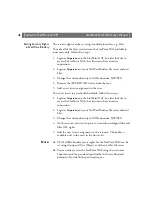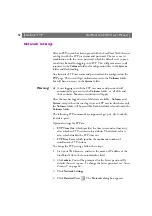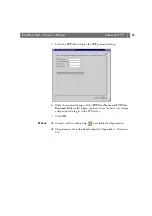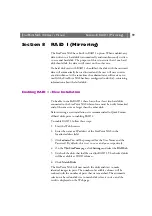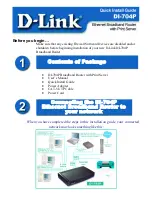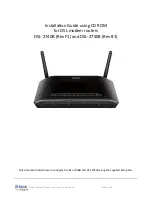
StorPoint NAS
100 User’s Manual
Section 4: NetWare (NCP)
45
NetWare Bindery
With Authentication
If user access control is required, you must specify an authentication
server in the Bind Authentication parameter. The StorPoint NAS will
need to log on to the authentication server in order to authenticate the
user and read which groups the user belongs to. In this case, the
authentication server must have a standby license for the StorPoint
NAS. However, several StorPoint NASs can share this license.
Important!
❏
If “Station Restrictions” are used on the Novell server used for
authentication, each user who wants to access the StorPoint NAS
need at least two concurrent connections to the authentication
server.
If a license is not available, the user will still be authenticated but group
information cannot be read.
The authenticated users can access the discs according to the access
rights set up by the Administrator.
The authentication procedure will not introduce any extra
administrator overhead as there is no need for maintaining a separate
user database for the StorPoint NAS. If the user is defined in the file
server that the StorPoint NAS uses for authentication, the user will
automatically have access to the StorPoint NAS.
Authentication to a
NetWare 3.x Server
For access to a StorPoint NAS connected to a NetWare 3.x server,
authentication is done against the user list in the bindery of the
NetWare server:
•
If a user is on the list, the password will be verified. If the password
is correct, the user will be granted access.
•
If the password is incorrect, login will fail.
If a user is not on the list, he will not be granted access to the StorPoint
NAS. However, he could login as ‘guest’ and get access to volumes that
are not protected.
Default Access Rights
The default access rights in NetWare bindery mode are set up by the
following trustee assignments:
•
The root of the SYS volume has [EVERYONE] as trustee, with File
Scan, Read, Write, Create, Modify and Erase rights.
•
The System folder has all rights, except Supervisor, filtered. Thus all
system files are effectively protected from normal users.
Note:
❏
You can use Filer to change the default access rights.
















